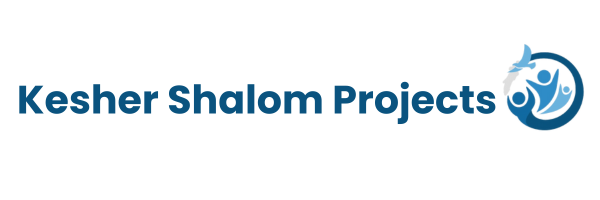Unmasking Propaganda: The Role of Professional Conversations in Addressing Antisemitism
Whether in the context of a staff meeting or a formal conference presentation, discussions about antisemitism must move beyond surface-level analyses to adopt a holistic approach to cultural competence. It is insufficient to recount histories of oppression and persecution without addressing the broader question of what it means to be Jewish. A clinical and nuanced exploration of Jewish identity—including its values, contributions, and resilience—is essential to fostering meaningful understanding. Furthermore, without delving into the broader psychological and sociological mechanisms of propaganda, these conversations risk falling short of their potential to inform and transform. Only by integrating these dimensions can discussions achieve the depth necessary to promote cultural competence and counteract the pervasive effects of manipulation and bias.
Propaganda exploits fear, oversimplifies complex issues, and presents false narratives as absolute truths. This manipulation dehumanizes targeted groups and fosters an "us versus them" mentality, eroding trust and critical thinking. Historical examples illustrate how propaganda can manipulate entire societies, justify atrocities, and dismantle ethical institutions.
During the Holocaust, the Nazi regime employed an intricate indoctrination process to normalize dehumanization and violence against Jewish people. Propaganda permeated every facet of life, from education to media, instilling anti-Jewish sentiments that justified inhumane medical experiments and mass murder. The medical profession, traditionally bound by the principle of "do no harm," was corrupted as physicians became complicit in genocide under the guise of advancing pseudoscientific agendas. This highlights the extent to which propaganda can distort moral frameworks and rationalize atrocities.
Similarly, the radicalization of Iran in the 1960s demonstrates how propaganda can reshape a nation’s cultural and political landscape. The regime weaponized religious ideology to suppress dissent, demonize minorities, and stifle critical thought. By presenting a distorted version of tradition and morality, propaganda dismantled intellectual freedoms and imposed oppressive frameworks. These changes continue to have profound effects, underscoring the generational impact of manipulation.
Understanding these historical examples is vital for recognizing the mechanisms that allow propaganda to thrive. Fear-mongering, repetition, and the strategic omission of nuance create environments where manipulation can flourish. This process undermines critical thinking, fosters division, and erodes societal cohesion. In professional settings, addressing these tactics equips individuals to identify and counteract similar patterns in contemporary contexts.
Focusing solely on Jewish persecution risks reducing Jewish identity to a story of victimhood. Jewish culture is deeply rooted in values such as education, justice, community, and perseverance. These aspects of Jewish heritage need to be front and center in conversations about antisemitism to foster a fuller understanding of what it means to be Jewish—highlighting resilience and contributions to society, dismantling stereotypes, and enriching discussions.
For example, the Jewish emphasis on education and critical thinking has led to remarkable contributions in fields ranging from science to social justice. By presenting these dimensions, we shift the narrative to one of empowerment and cultural richness. This approach also encourages non-Jewish allies to engage more meaningfully, fostering solidarity and mutual respect.
To make discussions about antisemitism meaningful in professional settings, it is essential to integrate psychological insights to explore how propaganda manipulates thought, fosters division, and erodes ethical standards. Equip participants with tools to recognize and resist these tactics. Highlight Jewish values, resilience, and contributions, creating a balanced narrative that goes beyond oppression. Encourage participants to question simplistic narratives and engage thoughtfully with complex issues. This empowers individuals to challenge propaganda and build inclusive environments. Share actionable steps to safeguard critical thinking and human dignity, such as fostering open dialogue, building cultural awareness, and addressing bias in decision-making processes.
Professionals have a unique opportunity to influence workplace culture and societal norms. By addressing antisemitism through a lens of cultural competence and psychological insight, they can build environments where diversity is celebrated and inclusion is prioritized. Equip teams with the skills to recognize and counter manipulation and bias. Foster resilience and solidarity in the face of challenges.
These conversations honor the lessons of history while empowering individuals to navigate contemporary challenges with clarity and empathy. They also underscore the importance of preserving critical thinking as a cornerstone of ethical and inclusive societies.
Antisemitism discussions in professional settings must go beyond recounting history or defining antisemitism. By unmasking propaganda and highlighting the resilience and richness of Jewish culture, we create opportunities for deeper understanding and stronger connections. These conversations are not just about the past; they are about building a future where critical thinking, human dignity, and cultural competence thrive. In doing so, we honor the complexities of identity and foster environments where all individuals can contribute and flourish.

